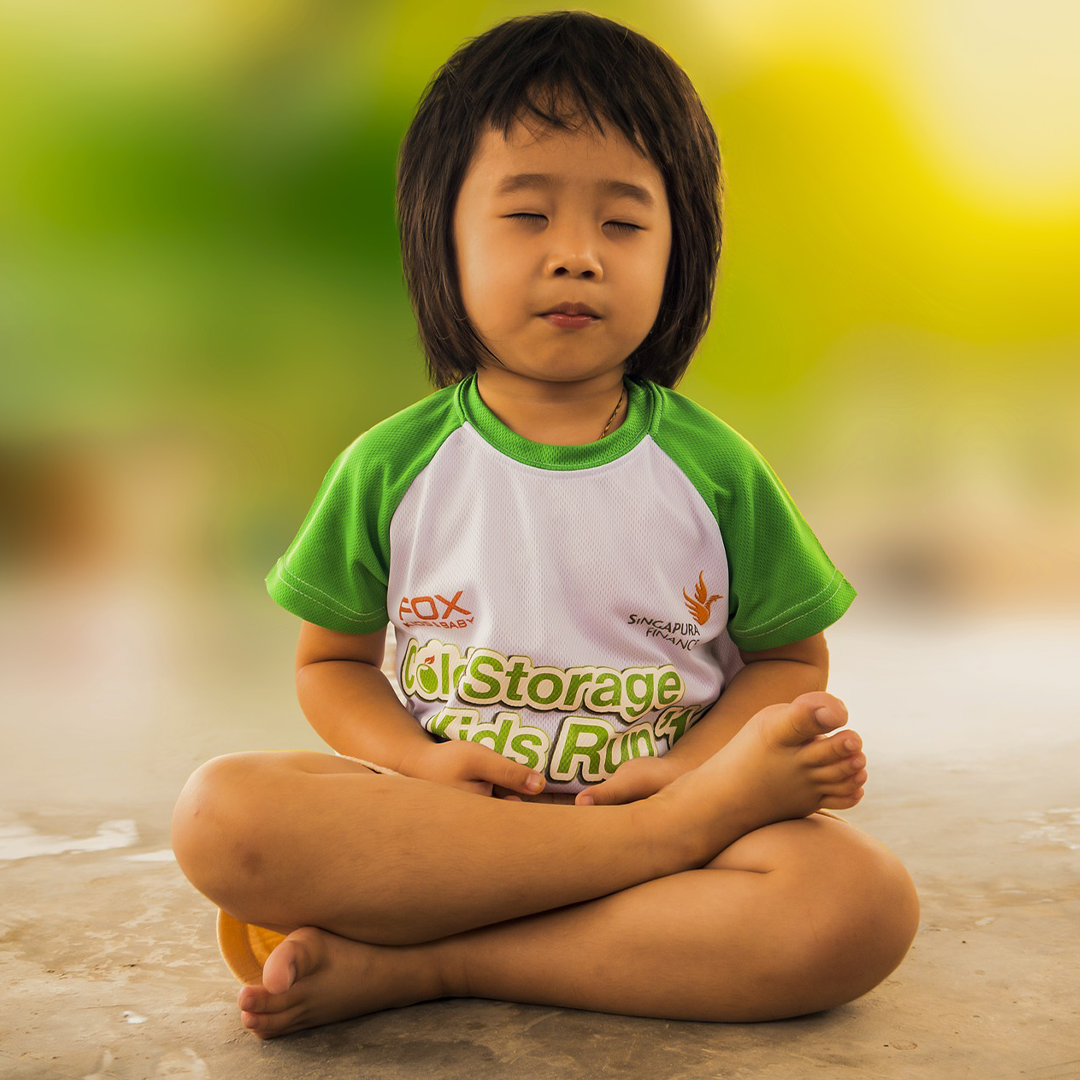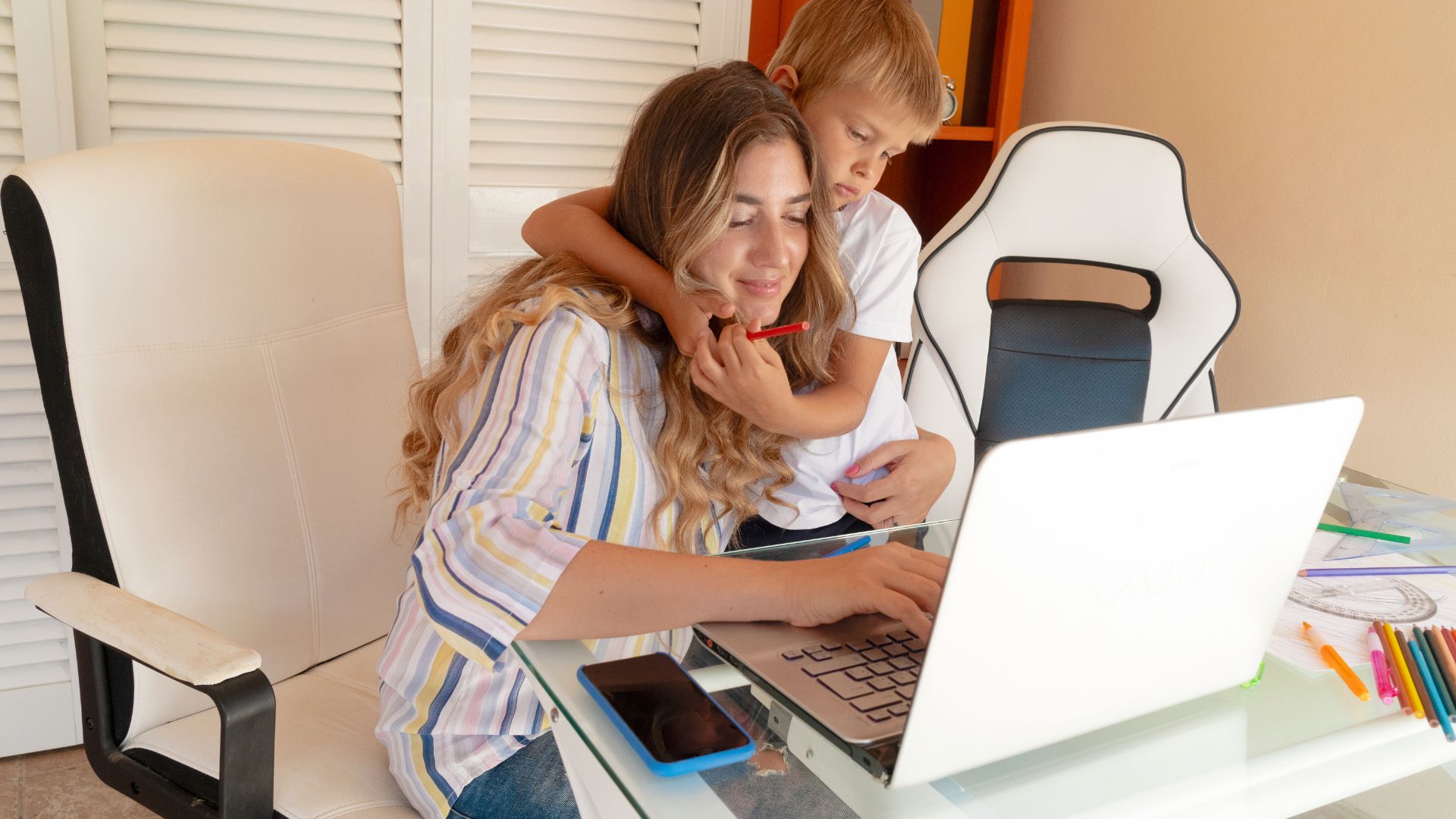Mindfulness Parenting with Jennifer Waldburger, MSW
Whether you gave birth months ago or years ago — you are probably far more alert now than you were before you became a parent. Even if you feel like you have “mommy brain.” That’s because you’re taking care of one or more children. Kids are small people with big needs. By practicing mindfulness parenting you can focus on understanding and meeting those needs as best you can.
Learn:
- Your influence started early
- Feelings are passed to your child
- Mindfulness parenting keeps you BOTH centered
- Showing 100% of yourself is the key
Children are Excellent Observers
Your child, of course, is equally focused on you, even when it seems like she’s just doing normal kid stuff. Banging her blocks on the floor, riding up and down the aisles with you at the grocery store, eating while she listens to you chat with your partner or spouse — your little one is actually studying you quite intently. She’s taking note of your tone of voice, your facial expressions, the way your touch feels, and all kinds of other sensory cues. She is learning how it feels to be around you. As mama—the one who carried her for give or take 40 weeks, and likely her primary caregiver — you are an indisputable star of the riveting reality show she calls life.
Your Influence Started Early
Your influence on your child’s experience started early. The fields of fetal psychology and epigenetics — which studies genetic expression — show us that babies begin tuning into their mothers while still in the womb.[1] [2] During your pregnancy, while the umbilical cord passed along nutrients from your body to hers, your growing baby also began to gather all kinds of information about you. She heard what you were saying outside the womb, she picked up on your emotions throughout the pregnancy, and when you felt stressed, she felt it, too.[3] [4] [5] It’s as though there was a second, invisible umbilical cord that allowed the baby to tune in to what was going on in your world, and to the more subtle aspects of your inner experiences.
When your baby was born, the physical umbilical cord was cut, but the invisible umbilical remained very much intact. It still does, regardless of your child’s current age. Though she uses her five senses to take in information about your facial expression, your voice, and the feeling of your arms around her, she continues to pick up on your thoughts, mood, and emotions. Research indicates just how powerfully contagious these can be.[6] [7] Remember how much your parents’ mental and emotional states affected you when you were a child? Maybe you had a mother who was depressed or anxious. Perhaps your father had an explosive temper, or always seemed stressed out. By now you probably realize which of your parents’ habits of thinking and feeling rubbed off on you and eventually became your own.
Quiet Time is a great opportunity to practice mindfulness.
Read: Dropping The Afternoon Nap — Transitioning To Quiet Time For Toddlers
Feelings Are Passed to Your Child
Now that you are the parent, your particular patterns of thinking and feeling — and the resulting influence of these on your behavior — will eventually become your child’s own thoughts, feelings and behavior. Repeated similar experiences of interacting with you light up the same neural pathways in her brain over and over. The good news is that you can be very proactive about what you pass along to your child, and the key to this proactivity is awareness.
While it’s true that you pass your stress and negativity along to your child , the flipside is also true. Mindfulness parenting allows you to share those gifts with your child as well.
Mindfulness Parenting Keeps You Centered
How exactly do you stay aware and centered, given that life as a mom has more ups and downs than a sleepless child? This is where mindfulness and meditation practice come in. Working with these practices, and learning how to stay present can help us learn how to “ride the waves” of our experience. Cultivating awareness is not about trying to be positive and happy all the time. It’s about saying no to the kind of negative thinking that makes you stressed — including any version of “I’m doing it wrong” — while saying yes to all that you are experiencing internally.
Letting go of blame can help!
Read: We Must Stop Blaming Parents for Baby Sleep Problems
Owning the truth of your experience as a mom means that you’re giving yourself permission to experience a full range of feelings without trying to change them. You don’t have to be the supermom who has all the answers and never lets anyone else down. Giving yourself permission to allow your full internal experience also helps you tap into your mama instincts. Those can be challenging to access when you’re stressed, but are much more available when you’re relaxed and comfortable in your own skin.

Showing 100% of Yourself is the Key to Happiness
One of the key ingredients to feeling happy in any relationship is the willingness to bring 100 percent of yourself to the table. The relationship with your child is no exception. If there are parts of yourself or emotions that you believe shouldn’t be there, trying to hide these will cause you stress and anxiety. Can you imagine saying to your child, “Honey, you can be happy anytime you want, but please don’t ever be sad, angry, or scared.” Of course not! Though that might actually sound like a nice fantasy, hopefully you recognize how unhealthy that would be for her. And, if that’s true for her, isn’t it also true for you? How will you be able to teach your child to have full freedom of expression if you don’t do the same for yourself?
As the parent, your job is not to be an unwavering rock of strength for her, but to teach her what it is to be human. She needs to witness you having feelings so she knows what they are and how to allow them when she has them. I’m not suggesting that you share all of your woes, as you are indeed the parent. However, if you get into the practice of allowing your emotions to surface and welcome them, you’ll find that they rise up and then pass like the weather. It’s similar for young children who haven’t learned how to block them.
Sleep deprivation makes it hard on your brain!
Read: Sleep Deprivation in New Parents: Learn All About Newborn Sleep
Mindfulness Parenting means Being Present and Connected
Mindfulness and meditation practices can help you enter into a much deeper relationship with yourself, your child, and partner. These practices will help you share the best of what you have to offer with your family. The more present we are in any relationship, the more connected we feel. The more connected we feel, the more that connection nurtures each of the people experiencing it.
After her physical needs are met, there’s arguably nothing more important you could offer your child than your own well-being. This will provide an inexhaustible wellspring from which you can nourish her with love and whatever else she needs.
Child won't sleep and you don't know where to start?
There is a gentle, proven method to get a good night's sleep for you and your child...
Sources:
[1] Cloud, John. “Why DNA Isn’t Your Destiny.” Time, January 2010.
[2] Verny, Thomas. The Secret Life of the Unborn Child. Dell, 1982.
[3]Moon, Christine, Hugo Lagercratnz, and Patricia K. Kuhl. “Language Experienced in Utero affects Language Perception after Birth.” Acta Paediatrica, February 2013.
[4] Hopson, Janet L. “Fetal Psychology.” Psychology Today, October 1998.
[5] Glover, Vivette, DSc, and Thomas O’Connor, PhD. “Effects of Antenatal Stress and Anxiety.” The British Journal of Psychiatry, 2002; 389-391.
[6] Haeffel, Gerald, J., and Jennifer L. Harnes. “Cognitive Vulnerability to Depression Can Be Contagious.” Clinical Psychological Science April 16, 2013.
[7] Siegel, D.J. (2006). An interpersonal neurobiology approach to psychotherapy: How awareness, mirror neurons and neural plasticity contribute to the development of well-being. Psychiatric Annals, 36(4), 248-258. According to brain researcher Dan Siegel, “ the mirror neuron system is thought to be an essential aspect of the neural basis for empathy. By perceiving the expressions of another individual, the brain is able to create within its own body an internal state that is thought to “resonate” with that of the other person. Resonance involves a change in physiologic, affective, and intentional states within the observer that are determined by the perception of the respective states of activation within the person being observed. One-to-one attuned communication may find its sense of coherence within such resonating internal states. In addition, the behavior of larger groups, such as families and social gatherings may reveal this shared state of internal functioning.”








